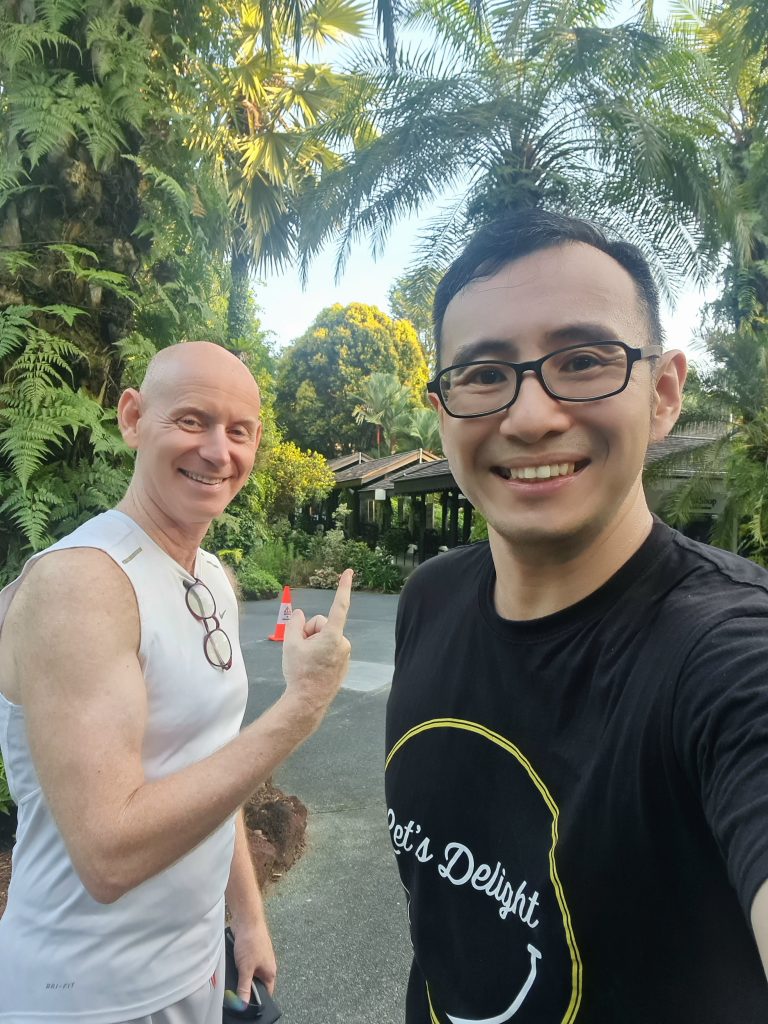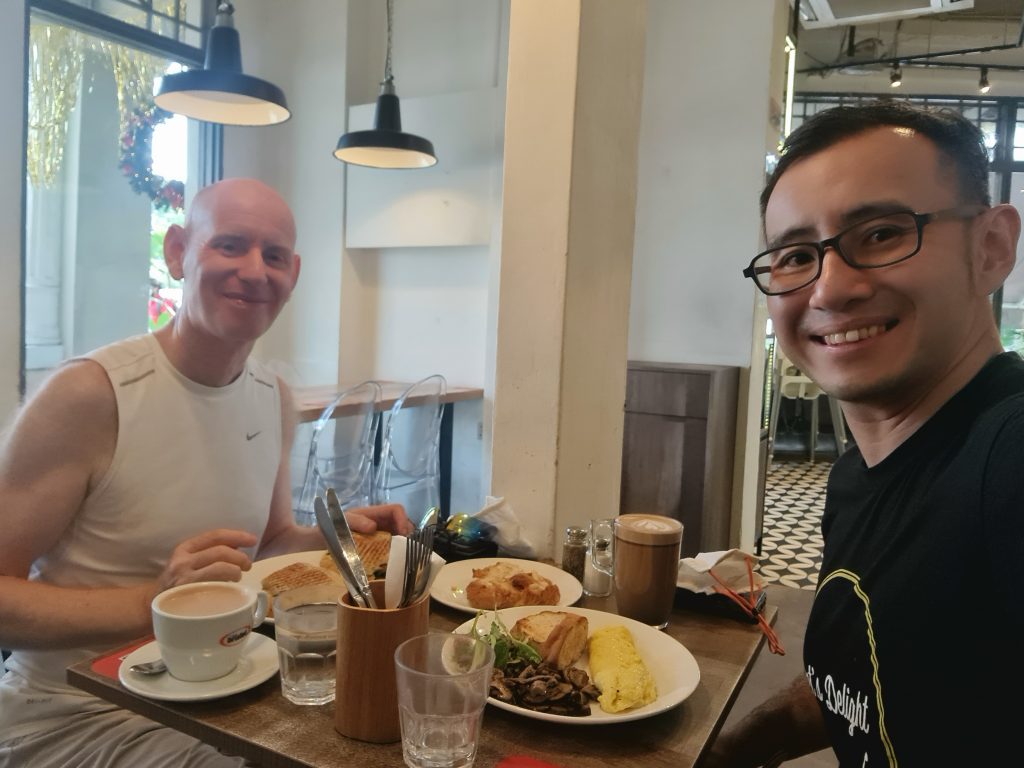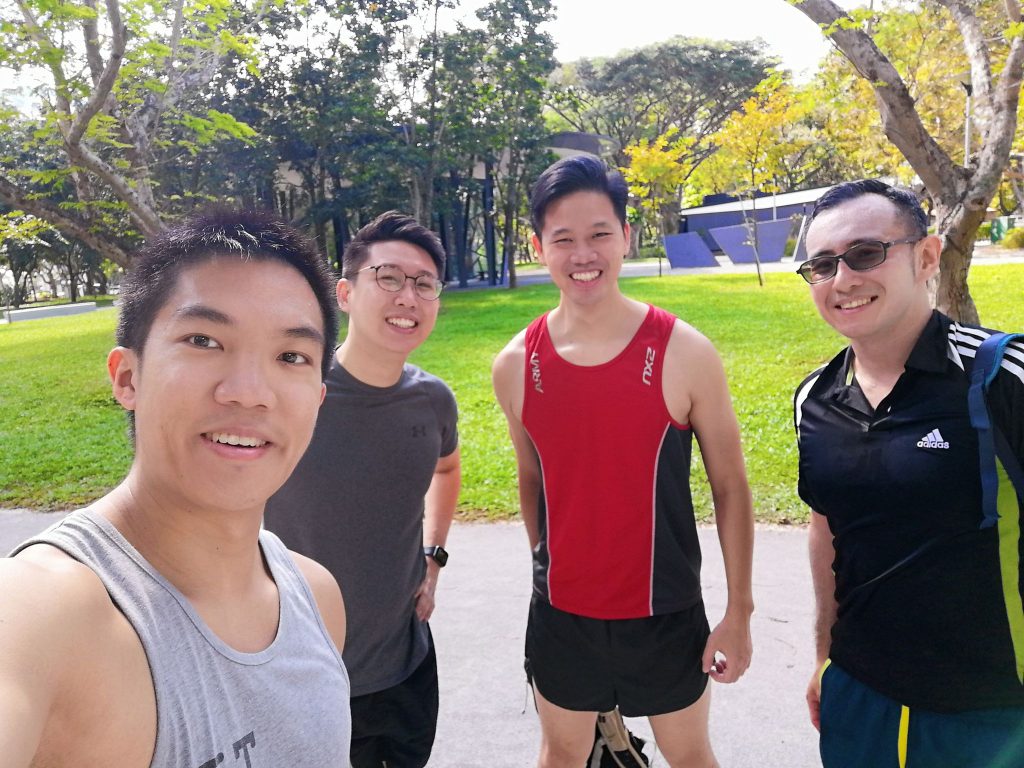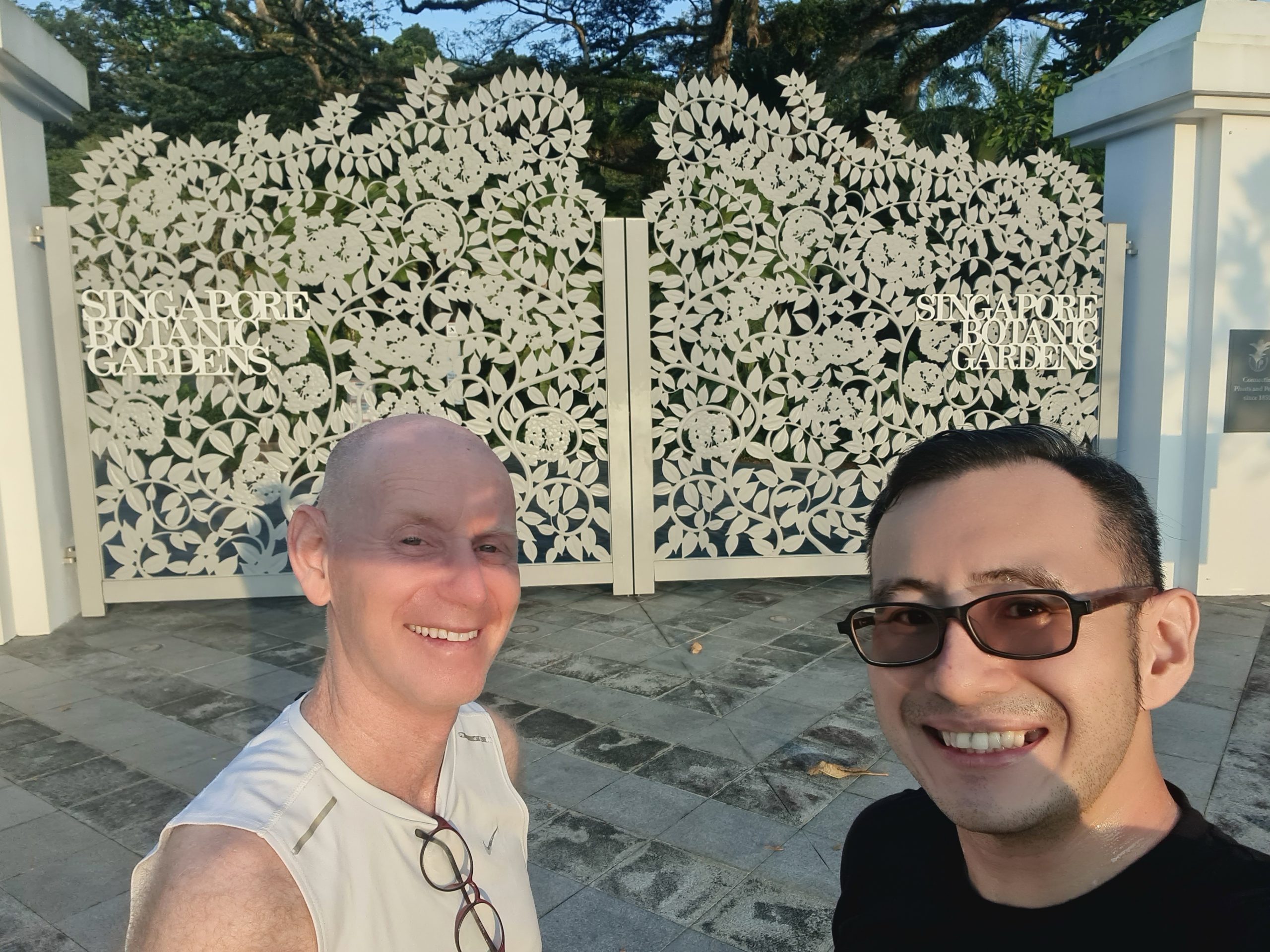Deep in the middle of the Singapore Botanic Gardens on our morning walk, my speaker business mentor, Avi Liran turned to me and said, “Lead us out to Serene Centre, where we’re having breakfast. You cannot use technology to guide you, you cannot look at the directional signs. I will just follow you, and I will not be giving you any advice.”
Taken a little by surprised by this command, I replied, “Okay, challenge taken.”
Throughout the journey, I’ve had to course correct several times. There were also times when I took the wrong turn, and ended up back where we were. Avi didn’t correct me, he didn’t blame me, he merely said “okay, now you’ve learned something! Now where do we go now?”
He was helping me to learn through my mistakes!

1) Learn Through Mistakes… And Don’t Forget to Enjoy the Scenery!
Then there was this once, when we came up to an apparent dead end in the road, leading up to a gate. “Oh damn!”, I moaned and was going to turn around and walk the other way.
“Wait! Go forward and see what’s there…” Avi offered. And as I did, my eyes widened as I came up to the gate and spotted a pathway beyond the gates that led to a majestic villa! “Woah!” I exclaimed, I wonder who lives here, it’s so opulent!

Avi sagely explained, “Sometimes, you make mistakes and your first instinct is to blame yourself and immediately make changes. However, sometimes it pays to slow down and enjoy the scenery and be curious about what the world can show you even through your mistakes”
And so as we continued our walk, Avi shared stories with me from his times in the Israeli Military, and how he learned the art of navigation.
2) How to Find Our Way when we are Lost – Lessons from the Israeli Army
When Israeli troops went for navigation training during officer course, they were expected to memorize the map, the terrain, the settlements. Under fire, they would not have had the time to check their maps, and that was long ago before cellular phones and GSM networks and GPS technology were available. They were taught that when they are lost in terrain in the dark, to head for the highest point of a particular terrain and look for the lights emanated from known settlements. They would then ask themselves the three questions, “Where were we? Where are we? Where are we going?”
This is a great metaphor for finding our way at times in our lives when we feel lost. This happened to me years ago when I was lost in my own speaking business. I was barely making enough money to buy three meals a day, and there were times I’ve had to borrow money from my parents to buy food.
At that time, I was also a member of the Asia Professional Speakers Singapore, an association of professional speakers. There, I was surrounded by many successful speakers and trainers, and I felt so small. I was lost and just as I was about to quit from the association, I had an epiphany. Instead of feeling small among the taller trees in the woods, why not reach out to these people and seek higher perspectives? After all, the minimal I can do is to at least seek them out and ask. I am glad that through the generous guidance of mentors like Avi Liran and Kenneth Kwan, that has helped me to not only grow my business, but also become the confident person that I am today.
When we may feel lost, seek out higher perspectives to help us see beyond our problems. Then look for known milestones in our lives, and ask ourselves the 3 questions: 1) Where were we? 2) Where are we? 3) Where are we going?

3) A Lesson on the Art of Mentoring and Coaching Others
So, after several wrong turns and an extra kilometre or two of walking, we finally made it to breakfast. Over breakfast, I asked Avi why he had let me lead the way, he replied, “Firstly, I have learnt that as a mentor, the best thing you can do is to give others the opportunities to make decisions. When they take wrong turns, you gently provide feedback and encouragement. This way, they take ownership over their decision. Secondly, as they course correct and find new ways to achieve the objectives, their minds are rewiring and their learning is crystallized. This is how the London cab-drivers develop enlarged prefrontal lobe regions in their brains, giving them the capacity to store sophisticated routes and perform complex route recalibration on the go. Finally, when people get to the destination successfully, they feel proud of their accomplishments and grow in confidence.”
I have just learned a very important metaphor for mentoring and guiding others, and I will never forget this lesson as I am expanding my team and leading and guiding more people. I have learned the difference between managing and leading people. Management is about providing the direction and instructions and ensuring they are acted upon, in this case, it’s all about the managers’ desires and vision. On the other hand, Leadership is about developing people and helping them to get to the destinations that they themselves want to get to.
This brings me to the next lesson…
4) Empower People to Overcome THIS Common Obstacle
At breakfast after a recent workout session with my business coach, Melvin Soh, he shared with me that one of the biggest obstacle stopping people from getting to where they want to go to, is comparison. When we are on the path towards success, we often compare ourselves with others, often forgetting that we are at different places in our journeys. This is an even more prevalent problem in the world of social media, where people are often showcasing their carefully curated stories to present to the world. Melvin’s words are “Don’t compare other people’s highlight reels with your practice reel.”
As coaches and mentor, what we want to do instead is to teach people to focus on their own craft, their own journeys, and not compare with others. This also extends to implicit comparisons between the mentor and the mentee. The worst things to say to someone you’re coaching and mentoring is “if I can do it! So can you!” I have often seen this happen around me, and I am very mindful to avoid this in my coaching and mentoring. To me, that is no longer coaching, and tethering dangerously close to “parenting” the people you lead. You do not want to take over the role of “father or mother” by showing your way as the only way to do things, and ask for compliance. This not only does not serve the people you lead, it even disempowers them from finding their own methods for success, and build confidence.

This leads me to the final lesson…
5) Why Choosing the Right Mentors Matter
I remember an intriguing story of female tennis legend Serena Williams from watching the Netflix Documentary Series, “The Playbook – A Coach’s Rules for Life”.
Since she was little, Serena has always been a precocious talent. Earlier in her professional tennis career, Serena was among the top players. However, she has a glaring Achilles heel in her game, her net play. That was until she found the right coach in Frenchman Patrick Mouratoglou in 2012. In one poignant scene in the show, Serena’s lack of confidence at the net reached a nadir at Wimbledon 2012. It was crippling her as she approached her net shots tentatively, and were making costly mistakes. During a practice session between matches, Patrick told Serena a white lie, saying that most of her winning shots were played when she was at the net. A rejuvenated Serena became a beast at winning net shots, and ended up winning the tournament!
As I have learned from another mentor of mine, business mentor Melvin Soh, having the right mentors are very important. It is not just about choosing people whom you admire for their achievements, skills or reputations. Very often, we choose mentors who may be right on paper, but for various reasons, may not be the right fit. Just like how Serena Williams has found the right coach and mentor in Patrick Mouratoglou, when we find the right coach who can bring the best out of us, we want to stick with that coach.
I Love My Walks of Wisdom
I always enjoy morning walks and exercise sessions with my mentors. Only by seeking out higher perspectives, get clarity, and learning powerful lessons on leadership, business and life, will I be able to continue to grow and serve even more people.
While running a speaking business is no cake walk, at least I can definitely glean much from taking walks in the park with my mentors.




